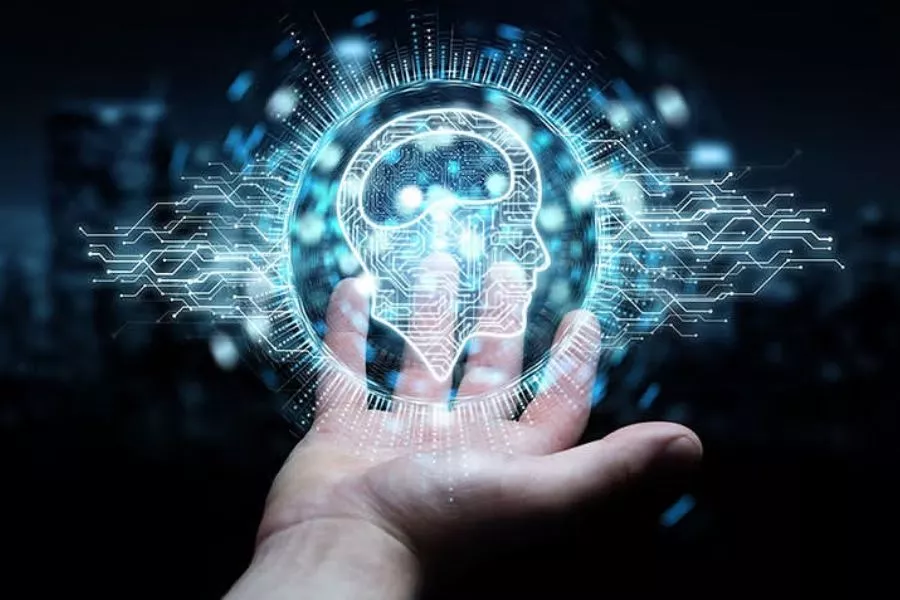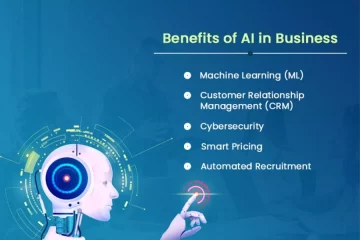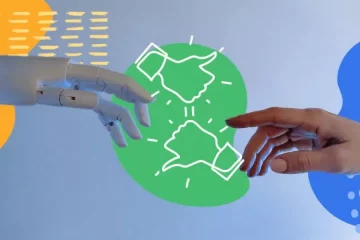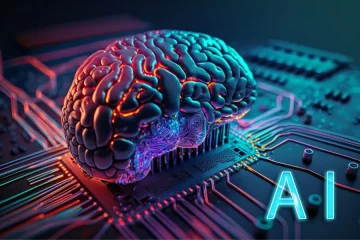The Future of AI: Exploring the Latest Advancements and Their Potential Impact

Future of AI
Artificial Intelligence (AI) has been a part of our lives for a long time, but it’s only in recent years that we have seen a surge in its use. From chatbots to self-driving cars, AI is changing the way we live and work. The potential impact that it can have on our future is immense and unimaginable. In this article, we’ll take a look at the latest advancements in AI, its potential impact on society, and the ethical concerns surrounding its use.
History of AI
The history of AI can be traced back to the 1950s, when computer scientist John McCarthy coined the term “artificial intelligence”. Since then, AI has gone through several phases of development. In the early days, the focus was on developing rule-based systems that could perform specific tasks. These systems were based on a set of pre-defined rules and were not very flexible.
In the 1980s, the focus shifted to machine learning, which allowed computers to learn from data instead of relying on pre-defined rules. This led to the development of neural networks, which were capable of learning complex patterns from data. With the advent of big data, machine learning has become even more powerful and is now used in a wide range of applications.
Advancements in AI
In recent years, we have seen rapid advancements in AI, especially in the areas of natural language processing (NLP) and deep learning. NLP has made it possible for computers to understand and interpret human language, which has led to the development of voice assistants like Siri and Alexa.
Deep learning, on the other hand, has revolutionized the field of computer vision. With the help of deep neural networks, computers can now recognize objects and images with a level of accuracy that was previously impossible. This has led to the development of self-driving cars and other applications that rely on computer vision.
NLP and Voice Assistants
Natural language processing (NLP) is a field of AI that focuses on enabling computers to understand and interpret human language. NLP has made it possible for computers to interact with humans in a more natural way, which has led to the development of voice assistants like Siri and Alexa.
Voice assistants have become increasingly popular in recent years, with millions of people using them every day to perform tasks like setting reminders, playing music, and getting weather updates. Voice assistants are powered by NLP algorithms that can understand and interpret human language, allowing them to respond to voice commands.
However, there are concerns about the privacy and security of voice assistants. Some people worry that these devices could be used to spy on them, and there have been reports of voice recordings being stored and analyzed by third-party companies.
Machine Learning and Deep Learning
Machine learning is a field of AI that focuses on developing algorithms that can learn from data. This allows computers to make predictions and decisions based on patterns in the data. Machine learning has become increasingly important in areas like healthcare, finance, and marketing.
Deep learning is a subset of machine learning that focuses on developing artificial neural networks that can learn from data. Deep learning has revolutionized the field of computer vision, allowing computers to recognize objects and images with a level of accuracy that was previously impossible.
Robotics and Automation
The use of robots and automation has been increasing in recent years, with AI playing a key role in their development. Robots and automation are being used in a wide range of industries, from manufacturing to healthcare.
In manufacturing, robots are being used to perform tasks like welding, painting, and assembly. In healthcare, robots are being used to perform surgeries and assist with patient care. The use of robots and automation has the potential to improve efficiency and reduce costs in many industries.
However, there are concerns about the impact of robots and automation on employment. Some people worry that the widespread use of robots and automation could lead to job losses and increased income inequality.
AI in Healthcare
AI has the potential to revolutionize healthcare by improving diagnosis, treatment, and patient care. Machine learning algorithms can be used to analyze large amounts of medical data, allowing doctors to make more accurate diagnoses and develop more effective treatments.
AI can also be used to develop personalized treatment plans for patients based on their individual medical history. This can lead to better outcomes and a more efficient use of healthcare resources.
However, there are concerns about the ethical implications of using AI in healthcare. Some people worry that the use of AI could lead to biased decision-making and the exclusion of certain groups of patients.
AI in Business and Finance
AI is being used in a wide range of industries, including business and finance. Machine learning algorithms can be used to analyze large amounts of data, allowing businesses to make more informed decisions.
In finance, AI is being used to develop trading algorithms that can make predictions about stock prices and other financial instruments. This has the potential to improve investment returns and reduce risk.
However, there are concerns about the ethical implications of using AI in business and finance. Some people worry that the use of AI could lead to market manipulation and insider trading.
Ethical Concerns Surrounding AI
The growing use of AI has raised a number of ethical concerns, including issues around privacy, security, and bias. There are also concerns about the impact of AI on employment and income inequality.
One of the biggest ethical concerns surrounding AI is the potential for bias. Machine learning algorithms can be biased if they are trained on data that is not representative of the population as a whole. This can lead to discriminatory decision-making and the exclusion of certain groups of people.
There are also concerns about the impact of AI on employment. Some people worry that the widespread use of robots and automation could lead to job losses and increased income inequality.
Future Predictions for AI
The future of AI is both exciting and uncertain. It’s clear that AI will continue to play a growing role in our lives, but it’s difficult to predict exactly how it will evolve.
Some experts predict that AI will lead to significant improvements in healthcare, with personalized treatments and improved diagnosis. Others predict that AI will lead to widespread automation and job losses.
Regardless of the specific predictions, it’s clear that AI will continue to have a major impact on our society in the years to come.
Conclusion
AI is a rapidly evolving field that has the potential to revolutionize our world. From voice assistants to self-driving cars, AI is already changing the way we live and work. As the technology continues to advance, it’s important to consider the ethical implications of its use and work to ensure that it benefits society as a whole.









